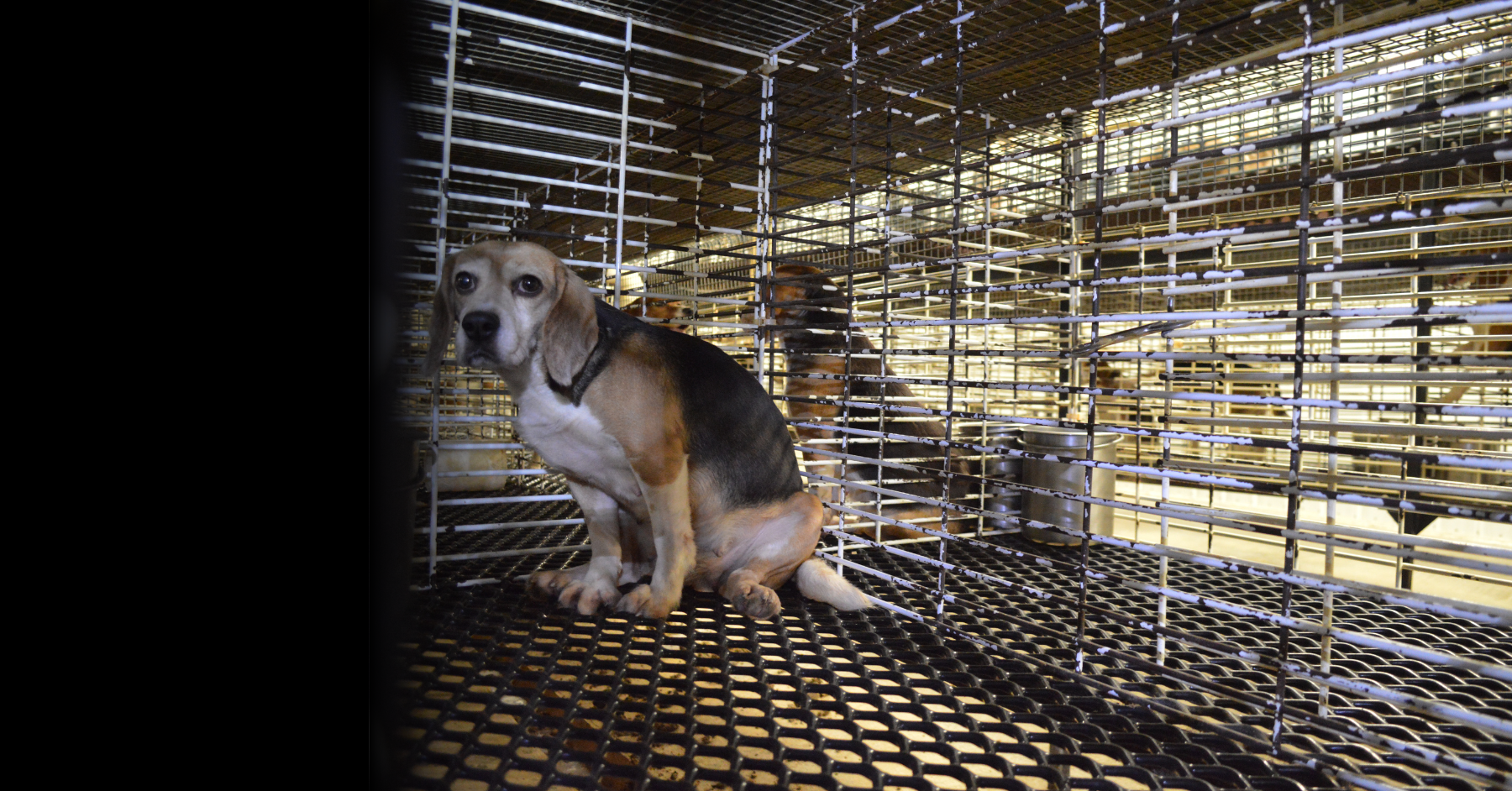
Ridglan, Marshall Among Animal Welfare Elite, per Industry
As we’ve been covering, Ridglan Farms and Marshall BioResources — the U.S.’s largest breeders of dogs for experimentation — are coming under increasing fire for their unethical and even criminal practices.
According to the animal research industry itself, though, both Ridglan and Marshall are positive animal welfare standouts. No joke.

Animal research industry front group AAALAC International lists both of these prolific animal exploiters as “accredited” institutions, meaning that AAALAC International has concluded that they “not only meet the minimum standards required by law” but “are also going the extra step to achieve excellence in animal care and use”.

That’s because, in an industry predicated on harming and exploiting animals, the only thing that matters is the public’s perception of animal welfare, not animal welfare itself.
Case in point: AAALAC International is a private animal research industry trade group that takes animal research facilities’ money in exchange for a voluntary “accreditation”, which researchers use to convince industry outsiders that they care about the very animals they are torturing.
The accreditation process is nothing more than a corporate transaction or, in the words of an animal research veterinarian, “a collegial and confidential exercise in peer review and professional self regulation”: AAALAC International sends animal research industry “peers” from other institutions to “visit” (not inspect) applicant facilities and to curry a “partnership” between these facilities and AAALAC International.

Despite this blatant sham — in the incestuous and corrupt world of animal research — purchasing AAALAC International’s ostentatious gold seal is marketed as having achieved the “gold standard” in animal welfare . . . even though AAALAC International accreditation has been shown to be associated with worse animal welfare.
Insiders commonly refer to AAALAC International accreditation as “the gold standard” of many things, like “commitment to the well-being of nonhuman animals used in research” and “excellence for laboratory animal facilities and programs….”
But, the facts tell a very different story.
Previous research has concluded — and Rise’s own research has confirmed, through the present — that AAALAC Accreditation “does not improve compliance with regulations governing the treatment of animals in laboratories” and “does not equate to [Animal Welfare Act] compliance”.

In other words, AAALAC International accreditation is associated with worse, not better, animal welfare. Ridglan and Marshall show us just what this looks like.
Animals so badly neglected that they display psychotic behaviors and scream continuously.
Animals found dead in their cages, including babies found dead in food bowls.
Animals having pieces of their bodies cut off and out by non-vet staff members and without anesthesia or pain relief.
(And, if they survive all of this: more confinement and isolation, more pain and suffering, the use of their bodies as “test subjects” for experiments that would be criminal if performed on humans, and, ultimately, death.)

AAALAC accreditation is, as even insiders have testified before Congress, a “farce”. But, it’s a powerful one that has entangled itself with the USDA . . . which is why we are suing.
Rise for Animals – in partnership with the Animal Legal Defense Fund and Harvard’s Animal Law and Policy Clinic – has filed suit against the USDA for illegally partnering with AAALAC International: since 2019, the USDA has adhered to a secretly adopted internal policy that prohibits USDA inspectors from conducting full annual inspections (as required by law) of any research facility that merely claims AAALAC accreditation.
The USDA went forward and continues with this policy even though (1) the USDA is legally required to inspect all animal research facilities, period; (2) the data shows that AAALAC International accreditation is associated with worse legal compliance and animal welfare; and (3) Congress itself has stated that AAALAC International “oversight” is akin to “setting a fox to watch the chicken coop”.
Ridglan and Marshall are showing us the truth about the animal research industry, one that extends far outside of their walls: welfare does not (and, really, cannot) coexist with use and exploitation — no matter who says otherwise.
The only way to ensure the welfare of nonhuman animals subject to the animal research industry is to end the industry. That’s our mission, and we need your help. If you can, please support our life-saving work to free animals from labs with a donation of any amount today:
Donate
Share this story on Facebook or X (Twitter) now.